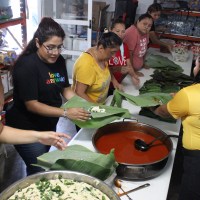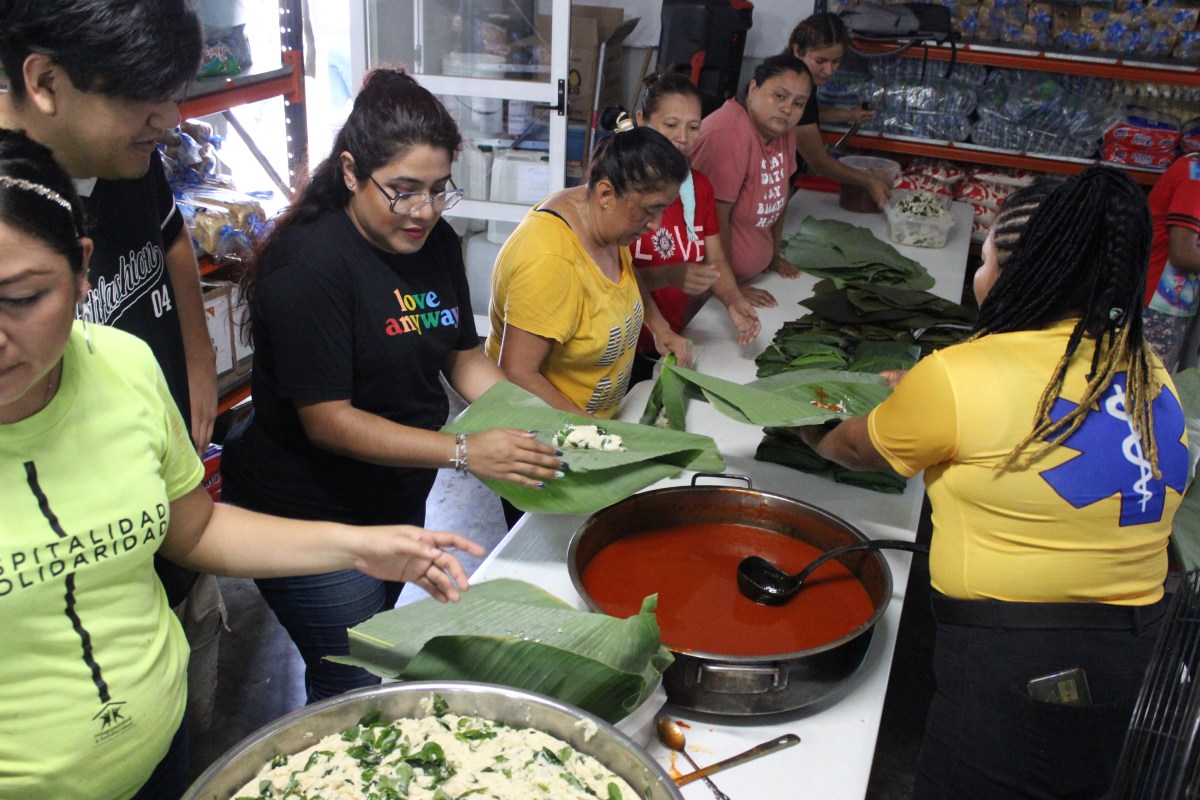An orange ball of sun hangs low over a highway, intensifying Tapachula’s dishrag heat. Above the sun, a gray blanket of clouds threatens rain. In this corner of southern Mexico sandwiched between the Pacific Ocean and the Guatemalan border, rain is a common plague.
From a cluster of nearby tents, a baby cries. A pregnant woman waddles between the tents towards the dirt road, her hands gently massaging the small of her back. She weaves around clumps of people–moms sitting on patches of dirt with toddlers anchored in their laps, sweaty teens sulking with boredom, and men with furrowed foreheads–to pass the time. All these people, hundreds of strangers, unite in their common task of waiting.
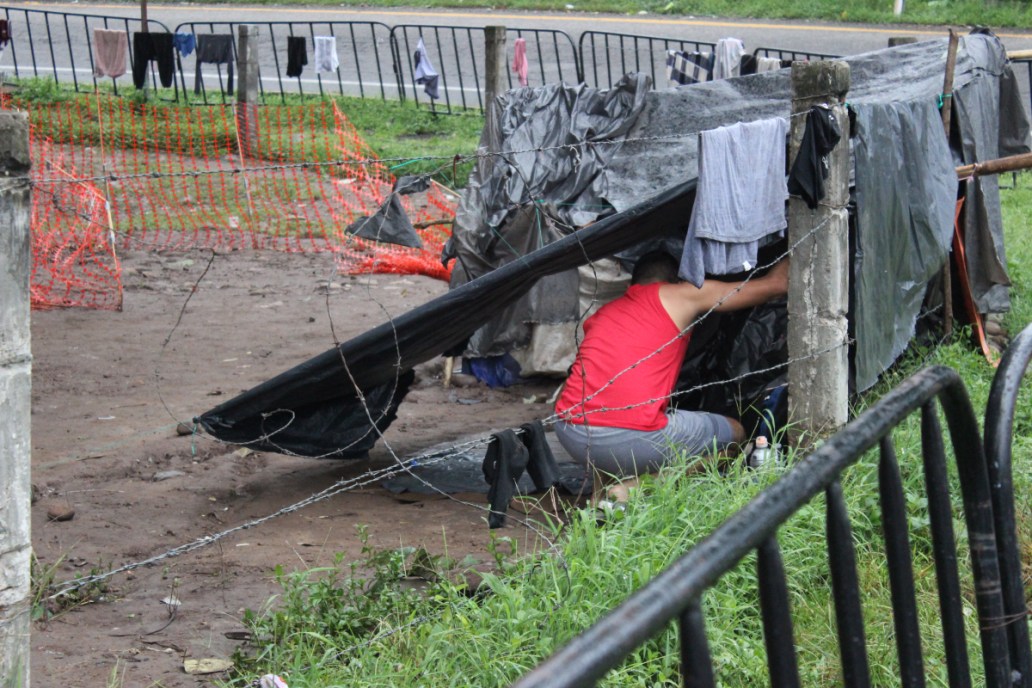
Tapachula can’t cope with the number of people arriving daily. The Mexican government tells people to wait on a patch of dirt or near a highway for a bus that will take them to another city where they can apply for appointments to receive permits allowing them to travel north. The government doesn’t tell them when that bus will come. Some people wait for weeks.
The woman’s ears perk at the sound of an approaching van. Sitting inside the van, Nancy* and her brother, Javier*, balance containers of homemade tamales on their laps. Originally from Guatemala, Nancy, Javier, their two younger sisters, and their mother fled gang violence, arriving at a shelter we partner with in Tapachula. They consider themselves the lucky ones, lucky to be safe, lucky to have found space in a shelter, lucky to still be together.
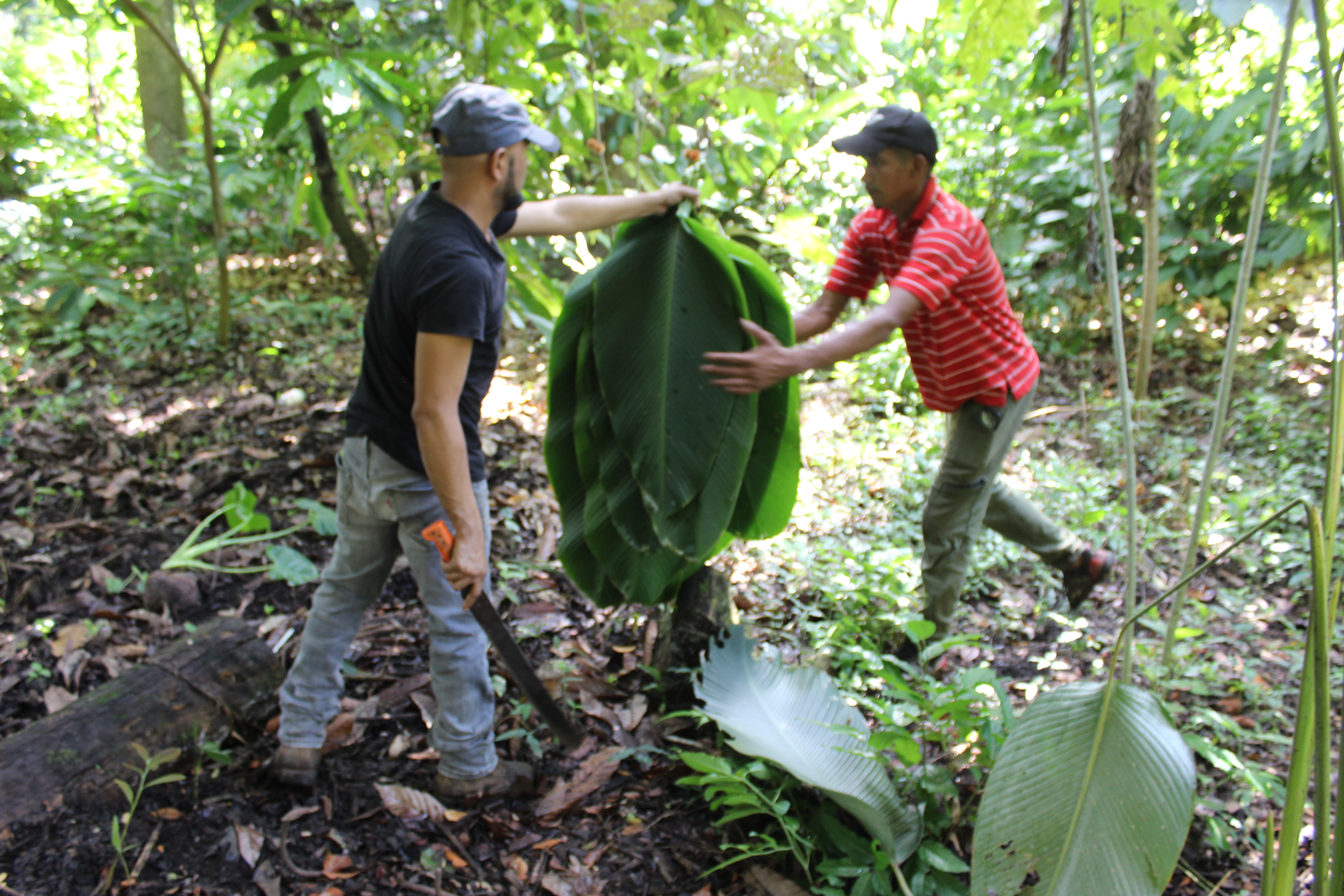
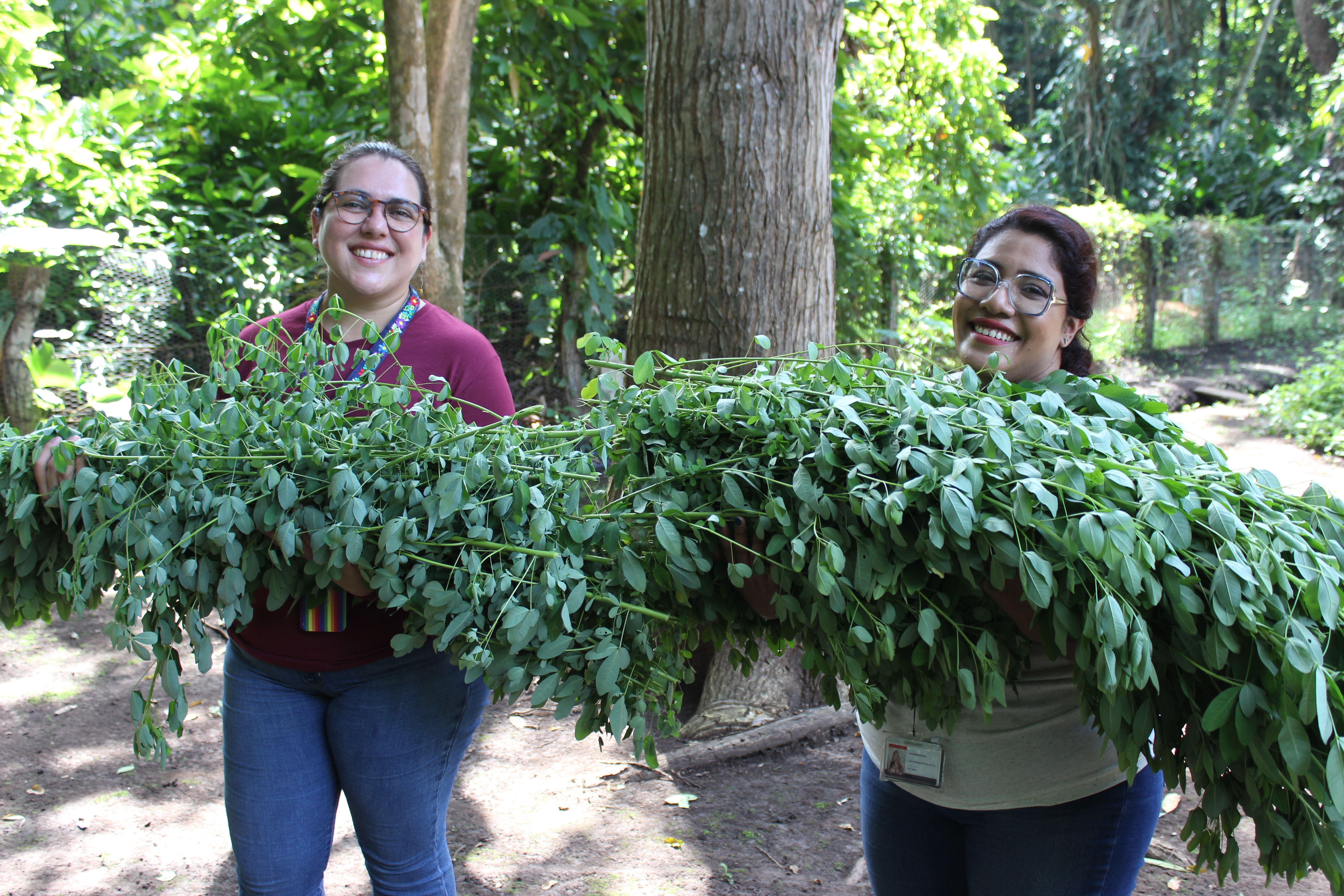
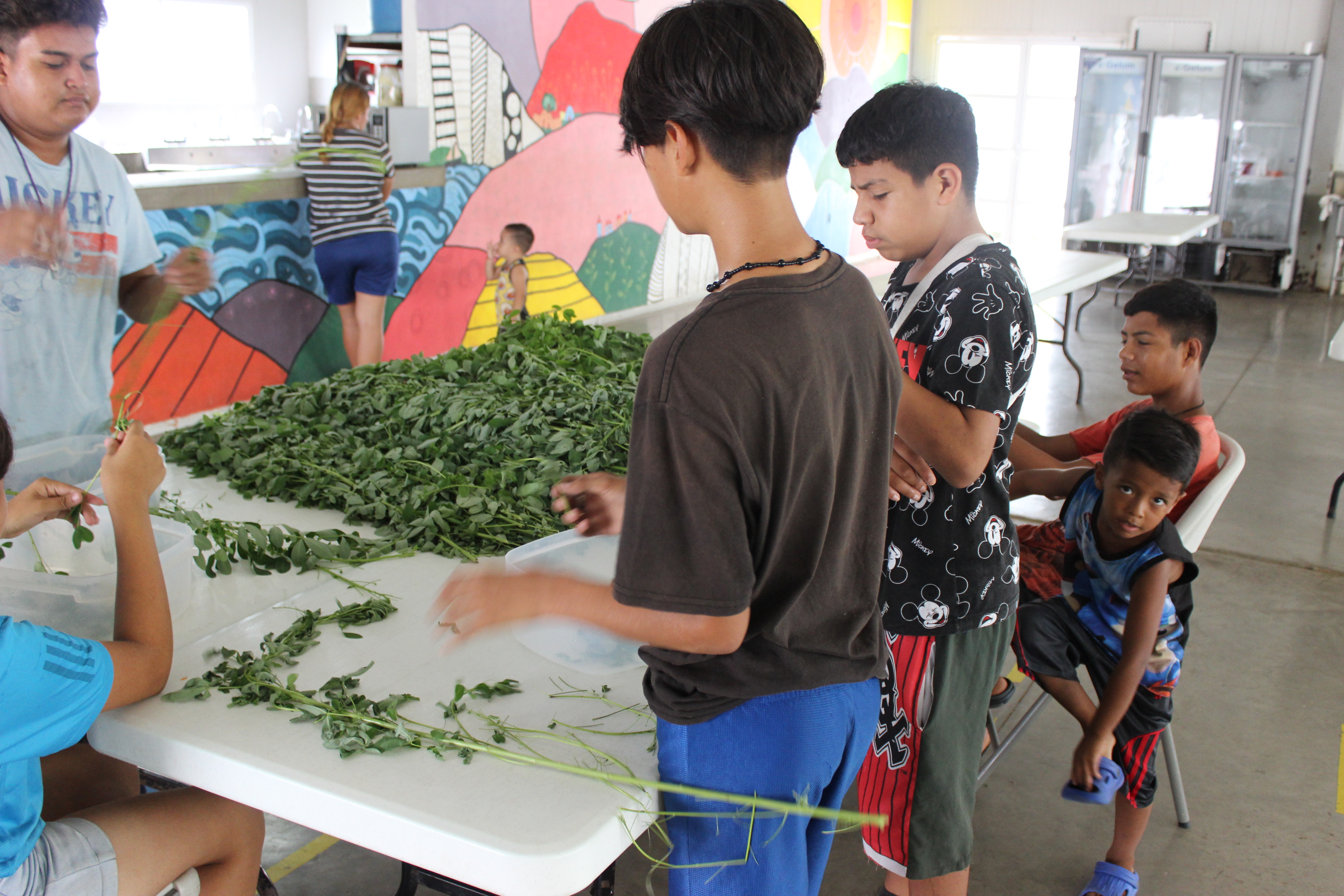
Mexico received 100,000 asylum applications by the end of August, with over half of the applications made at Mexico’s border with Guatemala. The International Rescue Committee says approximately 5,000 people a day come to their office in Tapachula for help. Instead of legal advice, they ask for food and water.
Nancy hugs the containers of tamales on her lap, not just to keep them balanced. Tamales are a dish close to Nancy’s heart. “We used to help our mom prepare this back home. I’ve always helped her in the kitchen…I like cooking a lot,” Nancy said. Wanting to help those not lucky enough to find a place to stay, our community of peacemakers set the ambitious goal of making 940 tamales to feed 800 people staying on the streets of Tapachula.
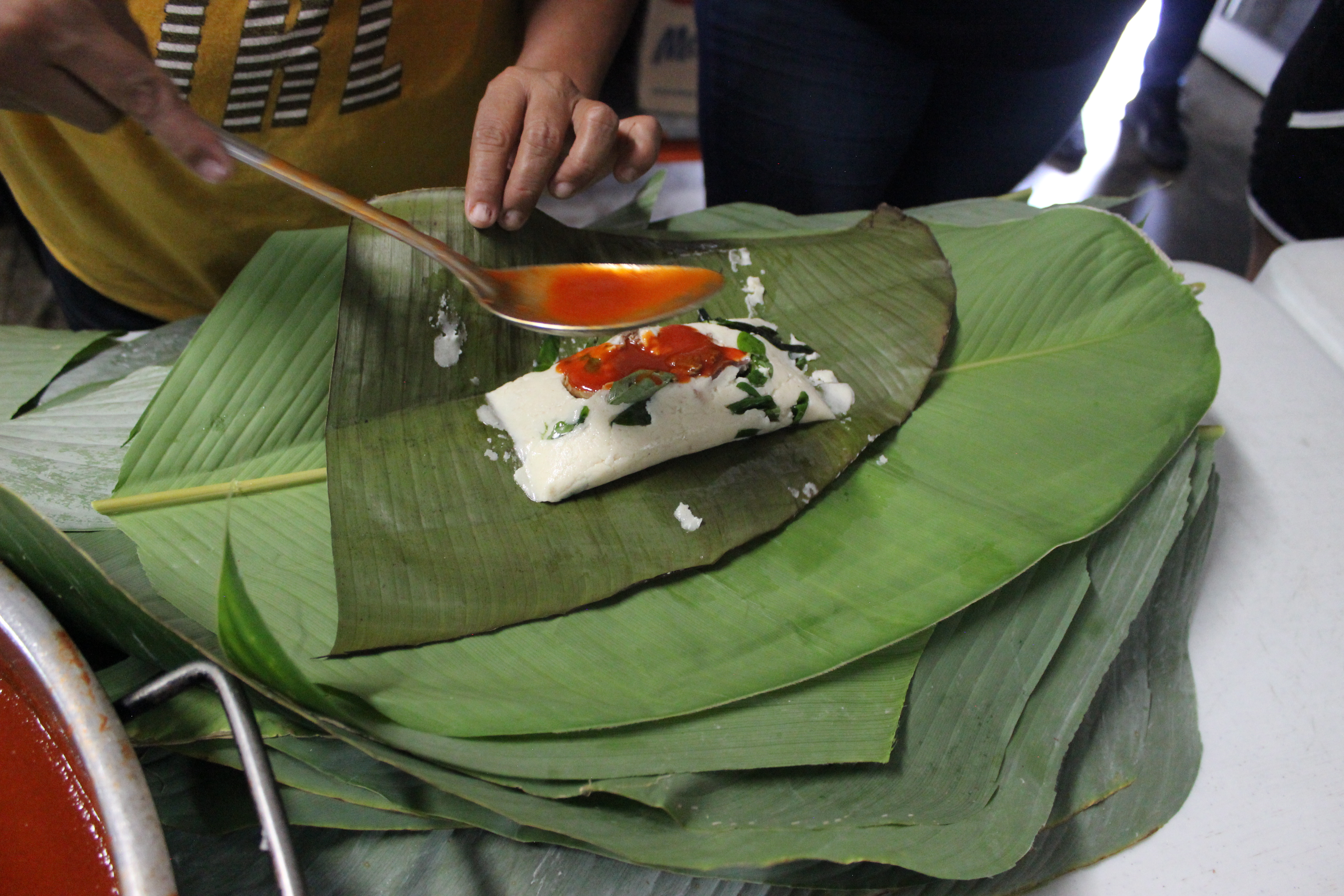
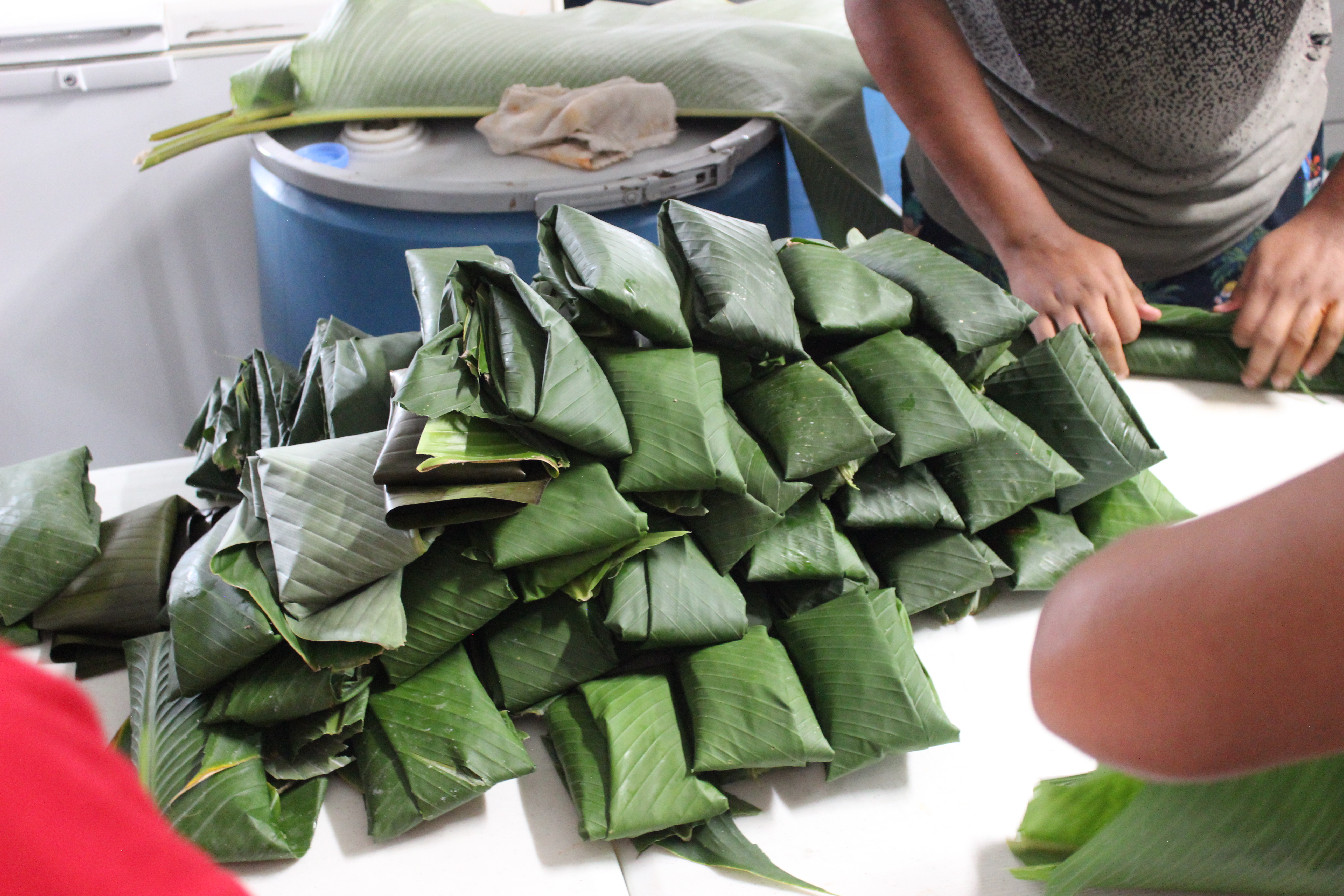
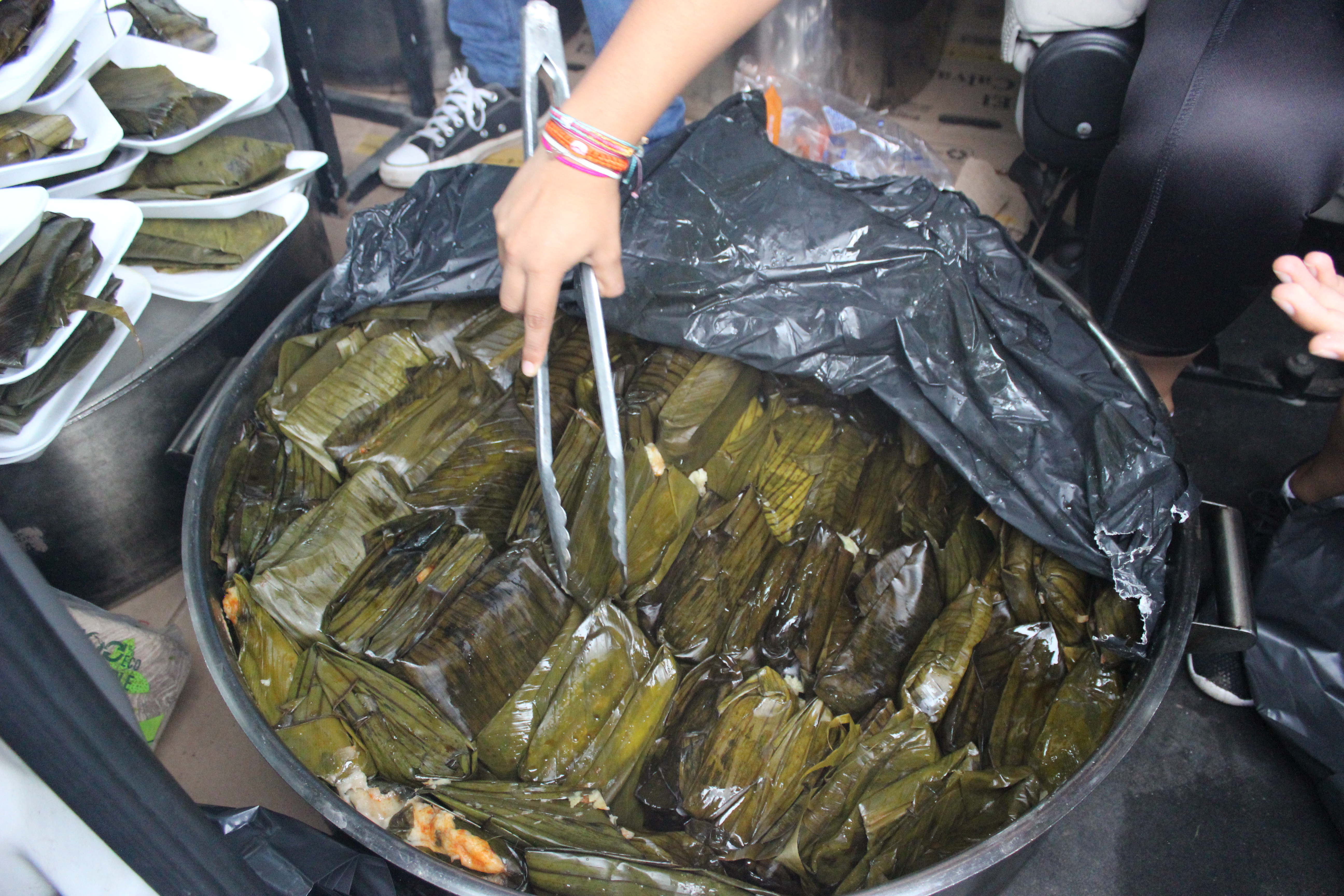
Using ingredients such as banana leaves, chipilin (a cross between spinach and watercress, choc full of vitamin C), and chicken meat from our farm project, migrants staying in the shelter got cooking. As they cut and transformed banana leaves into mouth-watering tamales, they compared the cooking styles of tamales in Guatemala and Mexico. Mexicans cook the meat (either chicken or pork) separately from the recaudo (the sauce) whereas Guatemalans cook everything together.
As Nancy prepared to hand out the tamales, she shared how full her heart felt. For any chef or passionate cook, there’s no greater joy than watching someone else enjoy what your hands have made. For Nancy, seeing someone relish her tamales meant seeing them savor not just a meal she had cooked but something she had personally harvested and thoughtfully delivered as a token of affection. Thanks to our community of peacebuilders: our partners at the farm and shelter, Nancy, Javier, and the other migrants who helped with the cooking, and you, we were able to feed everyone waiting for the bus, and those who wanted more could have seconds.
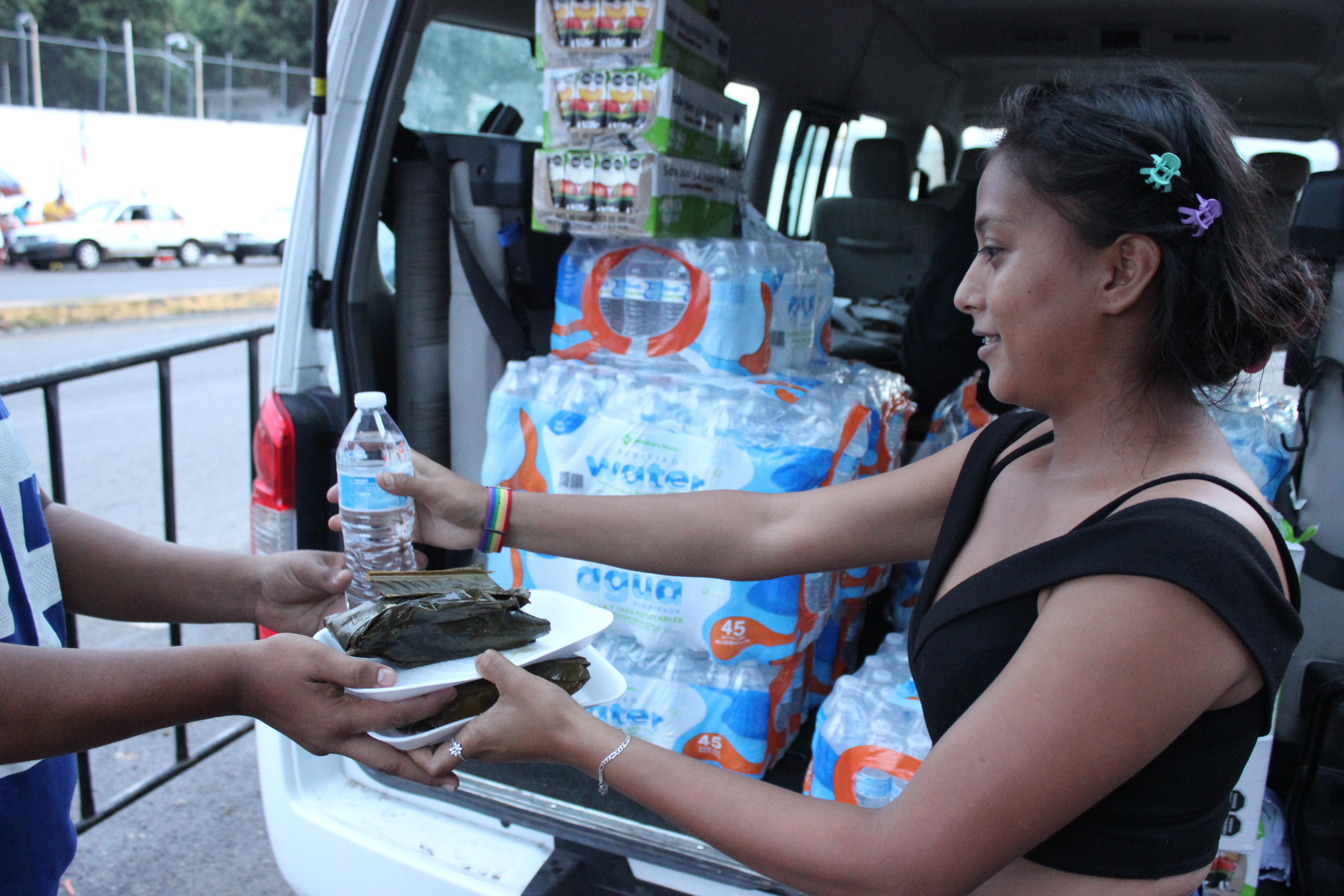
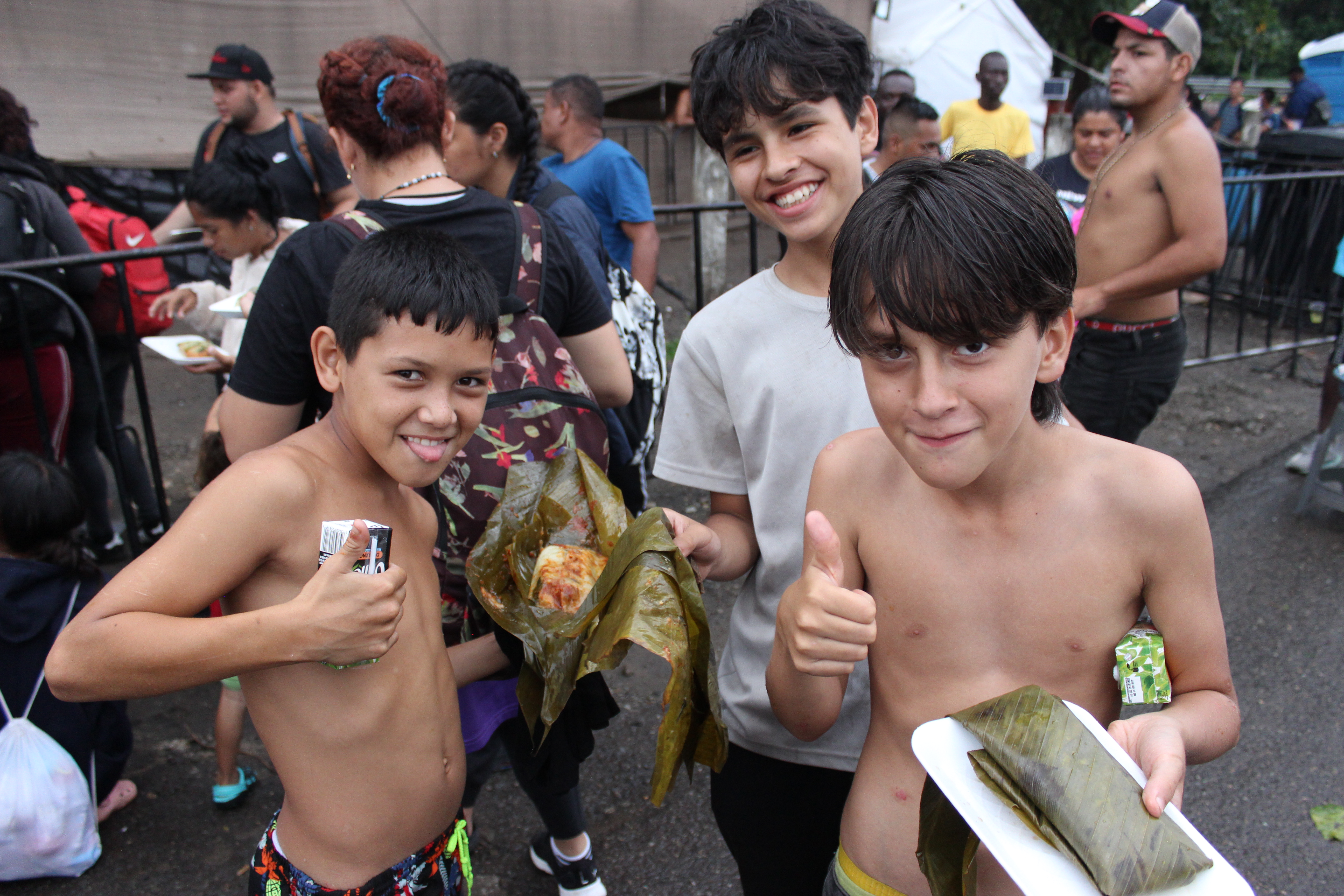
In Latin American traditions, people see tamales as little gifts, especially at Christmas time. Tamales are shared with friends and family on Christmas Eve as a thank you for having shared another year together. According to tradition, when you give a tamale to a person, you are telling them they are as important to you as your family. You hope the person eating your tamale will feel the love and dedication with which you made it. That’s why Nancy, Javier, and the other shelter volunteers decided to make tamales for those staying on the streets. They hoped to pass on love to those arriving in a new place. After all, in this journey of life, we are all migrants, just passing through.
*Not their real names
Reaffirm that we belong to one another

